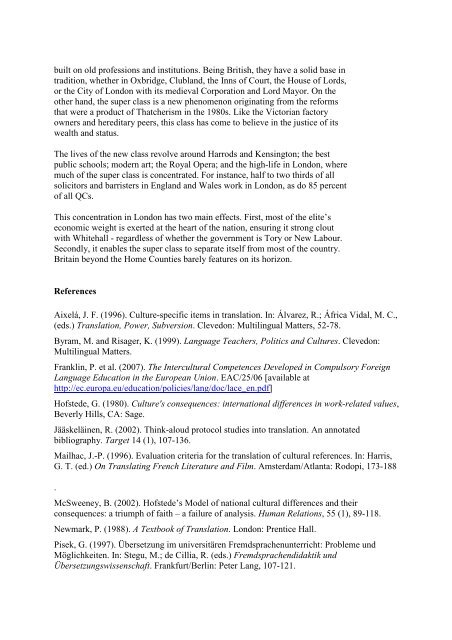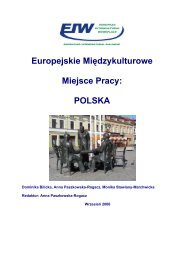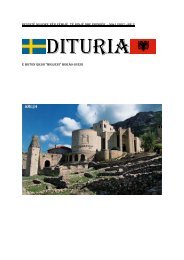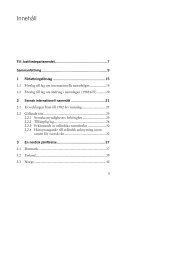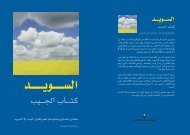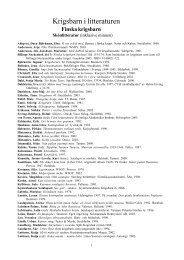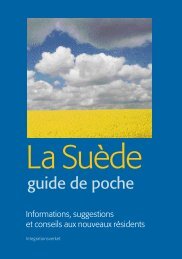Translation, Cultural Knowledge and Intercultural Competence
Translation, Cultural Knowledge and Intercultural Competence
Translation, Cultural Knowledge and Intercultural Competence
You also want an ePaper? Increase the reach of your titles
YUMPU automatically turns print PDFs into web optimized ePapers that Google loves.
uilt on old professions <strong>and</strong> institutions. Being British, they have a solid base intradition, whether in Oxbridge, Clubl<strong>and</strong>, the Inns of Court, the House of Lords,or the City of London with its medieval Corporation <strong>and</strong> Lord Mayor. On theother h<strong>and</strong>, the super class is a new phenomenon originating from the reformsthat were a product of Thatcherism in the 1980s. Like the Victorian factoryowners <strong>and</strong> hereditary peers, this class has come to believe in the justice of itswealth <strong>and</strong> status.The lives of the new class revolve around Harrods <strong>and</strong> Kensington; the bestpublic schools; modern art; the Royal Opera; <strong>and</strong> the high-life in London, wheremuch of the super class is concentrated. For instance, half to two thirds of allsolicitors <strong>and</strong> barristers in Engl<strong>and</strong> <strong>and</strong> Wales work in London, as do 85 percentof all QCs.This concentration in London has two main effects. First, most of the elite’seconomic weight is exerted at the heart of the nation, ensuring it strong cloutwith Whitehall - regardless of whether the government is Tory or New Labour.Secondly, it enables the super class to separate itself from most of the country.Britain beyond the Home Counties barely features on its horizon.ReferencesAixelá, J. F. (1996). Culture-specific items in translation. In: Álvarez, R.; África Vidal, M. C.,(eds.) <strong>Translation</strong>, Power, Subversion. Clevedon: Multilingual Matters, 52-78.Byram, M. <strong>and</strong> Risager, K. (1999). Language Teachers, Politics <strong>and</strong> Cultures. Clevedon:Multilingual Matters.Franklin, P. et al. (2007). The <strong>Intercultural</strong> <strong>Competence</strong>s Developed in Compulsory ForeignLanguage Education in the European Union. EAC/25/06 [available athttp://ec.europa.eu/education/policies/lang/doc/lace_en.pdf]Hofstede, G. (1980). Culture's consequences: international differences in work-related values,Beverly Hills, CA: Sage.Jääskeläinen, R. (2002). Think-aloud protocol studies into translation. An annotatedbibliography. Target 14 (1), 107-136.Mailhac, J.-P. (1996). Evaluation criteria for the translation of cultural references. In: Harris,G. T. (ed.) On Translating French Literature <strong>and</strong> Film. Amsterdam/Atlanta: Rodopi, 173-188.McSweeney, B. (2002). Hofstede’s Model of national cultural differences <strong>and</strong> theirconsequences: a triumph of faith – a failure of analysis. Human Relations, 55 (1), 89-118.Newmark, P. (1988). A Textbook of <strong>Translation</strong>. London: Prentice Hall.Pisek, G. (1997). Übersetzung im universitären Fremdsprachenunterricht: Probleme undMöglichkeiten. In: Stegu, M.; de Cillia, R. (eds.) Fremdsprachendidaktik undÜbersetzungswissenschaft. Frankfurt/Berlin: Peter Lang, 107-121.


